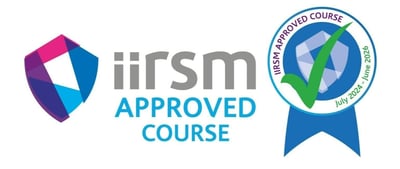
Cyber Risk
Cyber risk has become an increasingly important part of the business landscape that relies on digital technologies to deliver products and services.
With new threats and trends in cyberattacks emerging constantly, all employees need to understand what's expected of them in terms of cyber risk management.
Our Cyber Risk course provides an overview of the changing cyber risk landscape, recent cyber trends and what regulators expect.
- 45 Minutes
- For all staff
- Based on UK legislation, but suitable for global audiences upon the removal of UK-specific references and translation as necessary.

Learning objectives
- Appreciate why cyber risk awareness is imperative for our Company
- Recognise the sources of and emerging trends in cyber risk and the threats we may face
- Identify key regulations, as well as our duties and obligations in relation to cyber risk management
- Ensure adequate due diligence and oversight of managed service providers (MSPs) and third parties to mitigate cyber risk
- Put good governance and testing practices in place to limit our exposure to cyber risk
What can you expect your employees to learn?
Welcome
Learning objectives
How to complete this course
What is cyber risk?
- In numbers: The scale of the issue
The importance of cyber risk for firms
- You decide: The importance of cyber risk
- Types of cyberattacks
- Emerging threats
- In the news
- Cyberattacks by state-sponsored actors
- Rise in remote & hybrid working
- Supply chain & third-party attacks
- Cloud software & service providers
- Regulations: Cloud software & service providers
- Scenario: The third-party cyber breach
Insiders & employee negligence
- Complying with data protection regulations
- The NCSC's principles & guidance on managing cyber risk
- Objective A: Managing security risk
- Objective B: Protecting against cyberattacks
- Objective C: Detecting cybersecurity events
- Objective D: Minimising the impact of cybersecurity incidents
- The Cyber Assessment Framework in practice
- Reporting incidents
Operational resilience
- You decide: Operational resilience
- Deeper dive: Key elements of an operational resilience framework
Summary
Affirmation
Assessment
Start your compliance e-learning journey with a free trial
Our no-obligation free trial gives you access to our libraries and compliance platform.
Ready to start your free trial? Complete the form, and a member of the Skillcast team will be in touch with further details.
Your questions, answered
Common FAQs
Are Skillcast courses SCORM-compliant?
What other tools are needed beyond training?
Is our training content still compliant with the latest legislation?
- You can check the latest course content updates in our library updates page: https://www.skillcast.com/compliance-course-library-updates
- For major legislative changes, we:
- Send you email alerts to ensure you are notified
- Offer you a free trial of newly created or updated content
- Host webinars with compliance experts to explain the changes and how our training supports your ongoing compliance
Can you translate our content into other languages?
What file types are supported by the Skillcast system?
Features |
Supported file types and details |
|
File Exchange |
File types: PDF, Excel spreadsheets, Word documents, SCORM and xAPI files, and compressed zip files. Max file size: Default is 1GB, can be increased to a max of 2GB |
|
SCORM files |
Versions: SCORM 1.2, SCORM 1.2 for Moodle, SCORM 2004 2nd, 3rd and 4th Edition. Max file size: 1024MB |
|
xAPI file |
Max file size: 2GB |
|
Videos |
File types: MP4 or MOV. Videos must be optimised, with a max file size of 100MB. If the file is bigger, our Design Team can help |
|
Images |
File types: jpg, png and gif. The file size should ideally be 100KB, but it can be up to 250KB |
|
CPD evidence |
File types: Word, PDF, Excel and CSV. File size: the limit should be whatever the portal config option is set to. Servers are set to max 2GB |
|
Policy documents |
PDF or Word File size: the limit should be whatever the portal config option is set to. Servers are set to max 2GB |
|
Offline activities evidence |
File types: PDF, DOC, DOCX, XLS, XLSX, CSV, PNG, GIF, JPEG, JPG, PPTX and MSG. File size: the limit should be whatever the portal config option is set to. Servers are set to max 2GB |
|
Client logo files |
File types provided by client: EPS, PDF, AI and SVG |
|
Registers |
PDF, DOC, DOCX, XLS, XLSX, CSV, PPT, PPTX, POT, PPA, PPS, JPG, JPEG, PJEPG, PNG, BMP, GIF, MP4, MOV, WMV, CPTX, CP, TXT, ZIP and MSG files |
|
Declarations |
JPG, JPEG, PNG, GIF, XLS and XLSX files |
